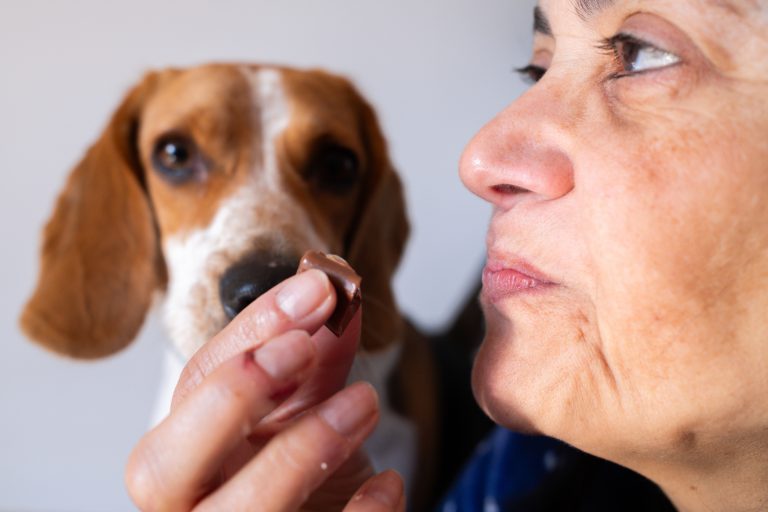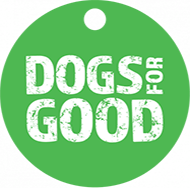Can Dogs Eat Chocolate? Understanding the Risks and Keeping Your Pet Safe
Chocolate is a beloved treat for many people—but it poses a serious risk to dogs. Whether during holidays or everyday indulgences, chocolate can be found throughout the home, and unfortunately, it’s one of the most common causes of poisoning in dogs.
Important: Even small amounts of chocolate can cause harm to your dog, so vigilance is essential.

Why Is Chocolate Dangerous for Dogs?
Chocolate contains theobromine, a stimulant similar to caffeine. While humans can metabolize it quickly, dogs cannot. Theobromine builds up in their system and can reach toxic or even fatal levels.
Different types of chocolate contain varying amounts of theobromine:
- Dark chocolate, cocoa powder, and baking chocolate are highly toxic
- Milk chocolate contains less theobromine but is still unsafe
- White chocolate contains very little theobromine but can still cause gastrointestinal upset
Factors like your dog’s size, the type of chocolate consumed, and the quantity all influence the level of danger.
Common Symptoms of Chocolate Poisoning in Dogs
If you suspect your dog has eaten chocolate, watch for the following symptoms:
- Vomiting or diarrhoea
- Rapid breathing or increased heart rate
- Seizures or muscle tremors
- Hyperactivity or extreme agitation
- Unusual behaviour or signs of pain
If any of these signs appear, contact your vet immediately.
Real-World Statistics
Dogs Trust, the UK’s largest dog welfare charity, released survey data highlighting that, ‘Over 48% of pet dogs have eaten chocolate intended for humans, and over 5% have become seriously ill from it.’ They also note that ‘sadly many dog owners are simply unaware of the dangers’ and ‘4 in 10 dogs had found chocolate themselves after it was left in easy-to-find places in the home.’
The RSPCA has also issued warnings, stating that ‘Chocolate poisoning is the most commonly reported type of dog poisoning reported to the Veterinary Poisons Information Service.’ This makes it clear that extra vigilance is required during any time of year when chocolate and rich foods are more prevalent in households.
How Much Is Too Much?
The danger depends on the dog’s weight, the chocolate type, and the amount consumed. For example:
- A 12–25kg dog might tolerate a small milk chocolate bar (e.g., 45g), but still monitor them
- A toy breed (<5kg) consuming a 240g dark chocolate bar could be in life-threatening danger
When in doubt, call your vet.
Top Tips: Preventing Chocolate Poisoning in Dogs
- Never give your dog chocolate—even in small doses
- Keep all sweets out of reach, especially during holidays or parties
- Educate guests and children about the risks
- Be mindful of other toxic foods like grapes, raisins, nuts, and xylitol-sweetened items
- If someone else is caring for your pet, make sure they understand these risks
- Always have emergency vet contact information accessible
- Treat your dog with healthy alternatives like carrot sticks or dog-specific treats and toys
FAQs
Can dogs eat any type of chocolate safely?
No. All forms of chocolate contain theobromine, which is toxic to dogs. Even small amounts can be harmful, especially for smaller breeds.
Isn’t a small amount okay?
This is a common misconception. While a larger dog might not show immediate signs from a small bite, any amount carries risk. It’s better not to take chances.
What about white chocolate?
White chocolate contains very low levels of theobromine but is still high in sugar and fat. It can cause vomiting, diarrhoea, and hyperactivity. It’s not safe for dogs.
Can I give my dog chocolate made for humans, like Cadbury or Milky Bar?
No. These chocolates are made for human consumption and are not safe for dogs under any circumstance. However there are some dog chocolate treat alternatives, such as the Beco Dog Choc with Carob, Chamomile and Quinoa Adult Dog Treats. These treats contain Carob, which is a healthy chocolate alternative for dogs.
Are there chocolate alternatives that are safe for dogs?
Yes. Look for pet-specific treats made with carob, a natural, dog-safe alternative that tastes similar to chocolate but contains no theobromine.
What should I do if my dog eats chocolate?
Call your vet immediately and try to provide details about what was eaten, how much, and when.
Please note: Barking Mad, the UK’s leading home dog boarding provider, assumes no liability for the content of this page. This advice is not a substitute for a proper consultation with a vet and is only intended as a guide. Please contact your local veterinary practice for advice or treatment immediately if you are worried about your pet’s health – even if they are closed, they will always have an out of hours service available.




